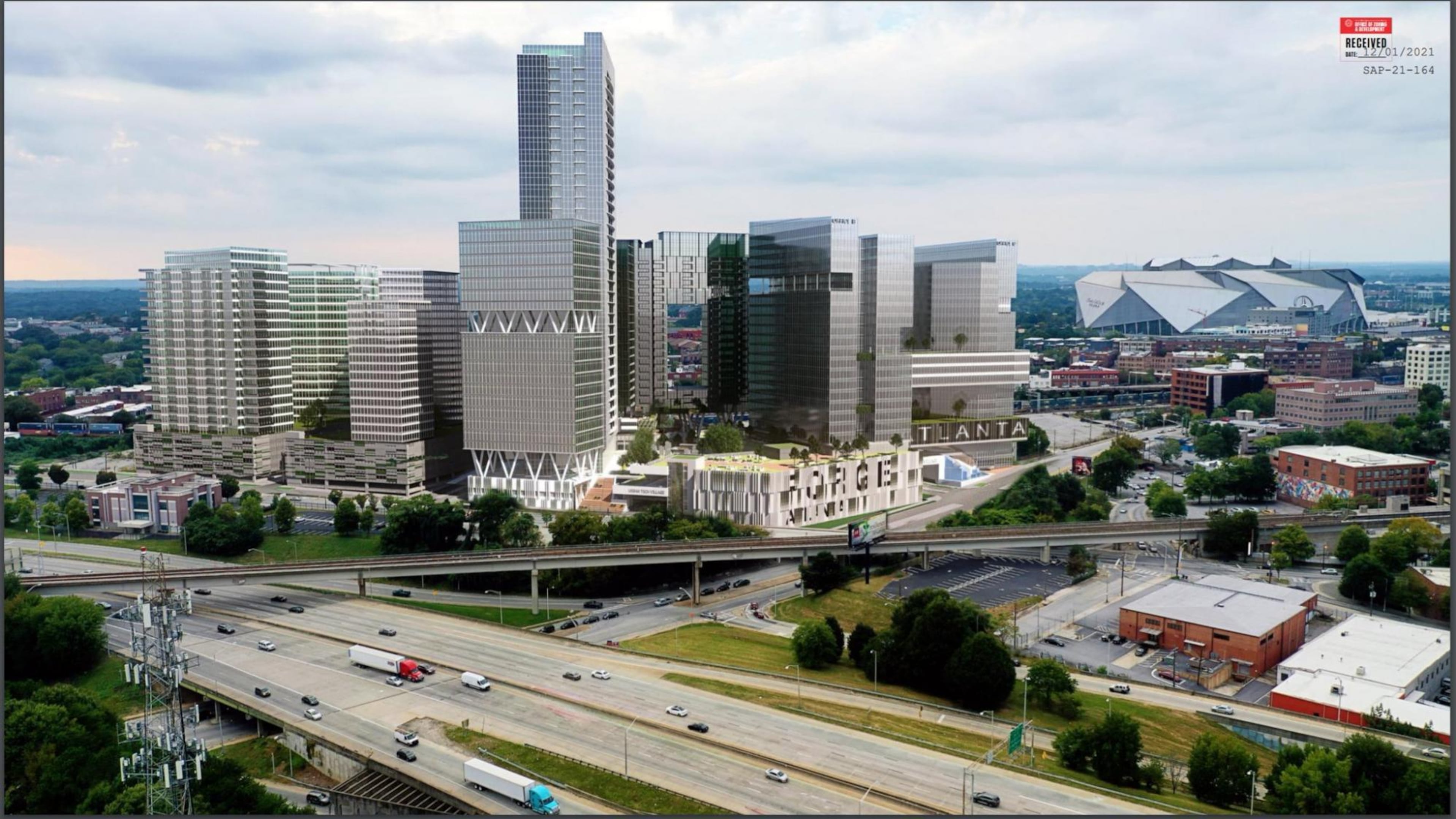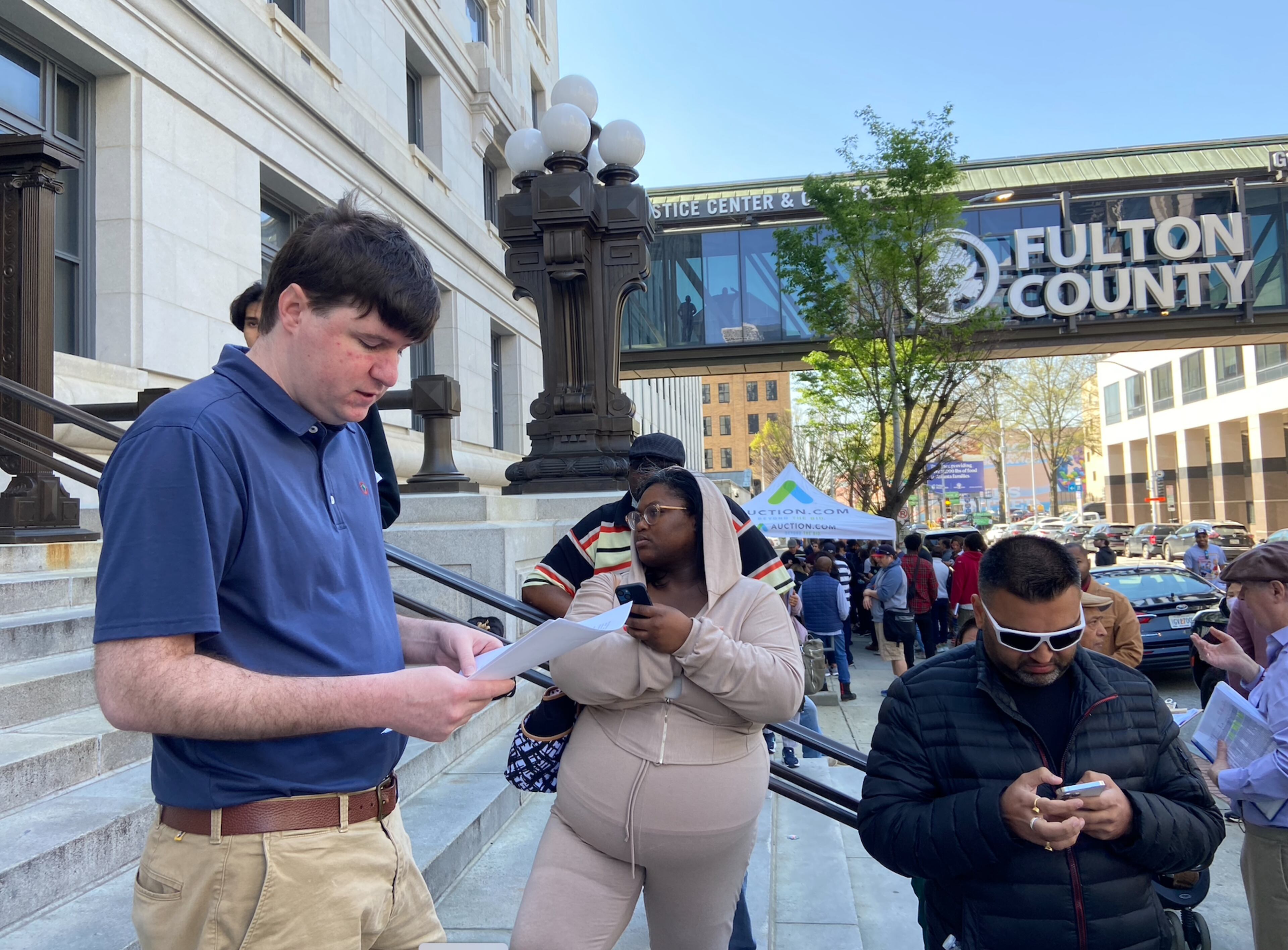‘The market killed it’: Forge Atlanta site undergoes foreclosure

A 10-acre site straddling Castleberry Hill and downtown Atlanta that had been pitched as a multi-high-rise life sciences campus was foreclosed upon Tuesday by its lender.
Developer Urbantec Development Partners had said the project, known as Forge Atlanta, would include more than a half-dozen sleek towers. It would blend offices, apartments, retail, a hotel and an entertainment venue along Whitehall Street about a half-mile south of Centennial Yards.
The reversal comes as the post-pandemic office market remains muddled as companies navigate hybrid work schedules and developers pause projects amid an uncertain economy and rising interest rates. The Forge site joins several buildings within the Peachtree Center office complex among recent high-profile Atlanta foreclosures.
Urbantec bought the site near the Garnett MARTA station about two years ago for $26.1 million — most of which was financed with loans from the land’s previous owner, McCall Railroad LLC.
McCall, an entity created by Gourmet Foods International founder Russell McCall, reacquired the property at Tuesday’s foreclosure sale on the steps of the Fulton County Courthouse. Its unchallenged bid was $20 million.

Forge Atlanta aimed to join downtown’s list of gigantic redevelopment projects, but it never broke ground.
“It’s not exactly prime real estate along Peachtree Street or the Beltline,” A.J. Robinson, the president of downtown civic organization Central Atlanta Progress, told The Atlanta Journal-Constitution. “So the guys (Urbantec) might have been a little bit early in their development ideas that they could pull off.”
Urbantec founder and CEO Jae Kim did not respond to requests for comment.
In October 2021, Kim announced the 3.8-million-square-foot development, about the same floor space as three Bank of America Plazas. Most of the 1.2 million square feet of offices was going to target life sciences companies, based on the pitch.
Henry Lorber, a distressed real estate expert with Henry Lorber and Associates, said office projects are a tough sell in this economy, especially those targeting high-tech industries.
“The market killed it,” Lorber said.
Multiple tech giants, including Google and Meta, recently laid off workers. Amazon and Microsoft not only cut their global workforces, but paused high-profile new campus expansions, respectively slated for Virginia and Atlanta’s Grove Park neighborhood.
Urbantec’s loans totaled $25.7 million, and pressure ramped up on the developer last year when McCall and Urbantec agreed to expedite the loan’s maturity date by a year to January 2025.
“That tells me that you have a nervous lender,” Lorber said. “You don’t do that if you have great faith. You only do that if you’re attempting to put pressure on the borrower.”
Several buildings within Peachtree Center, the landmark downtown office and retail complex designed and built by famed late Atlanta developer John C. Portman Jr., underwent foreclosure in September after debt restructuring fell through. Its loans totaled more than $140 million.
Real estate analysts said the Peachtree Center foreclosure — one of the largest in Atlanta since the aftermath of the Great Recession — could be a harbinger for older towers. But Robinson said Urbantec’s project, which had yet to begin construction and wasn’t financed through a traditional lender, doesn’t fit the same trend.
“I don’t think this is a barometer of what’s going to happen,” he said. “But I do think there’s going to be some other issues with existing buildings, not only downtown but across Atlanta as the office space continues to figure out what’s going to happen.”


